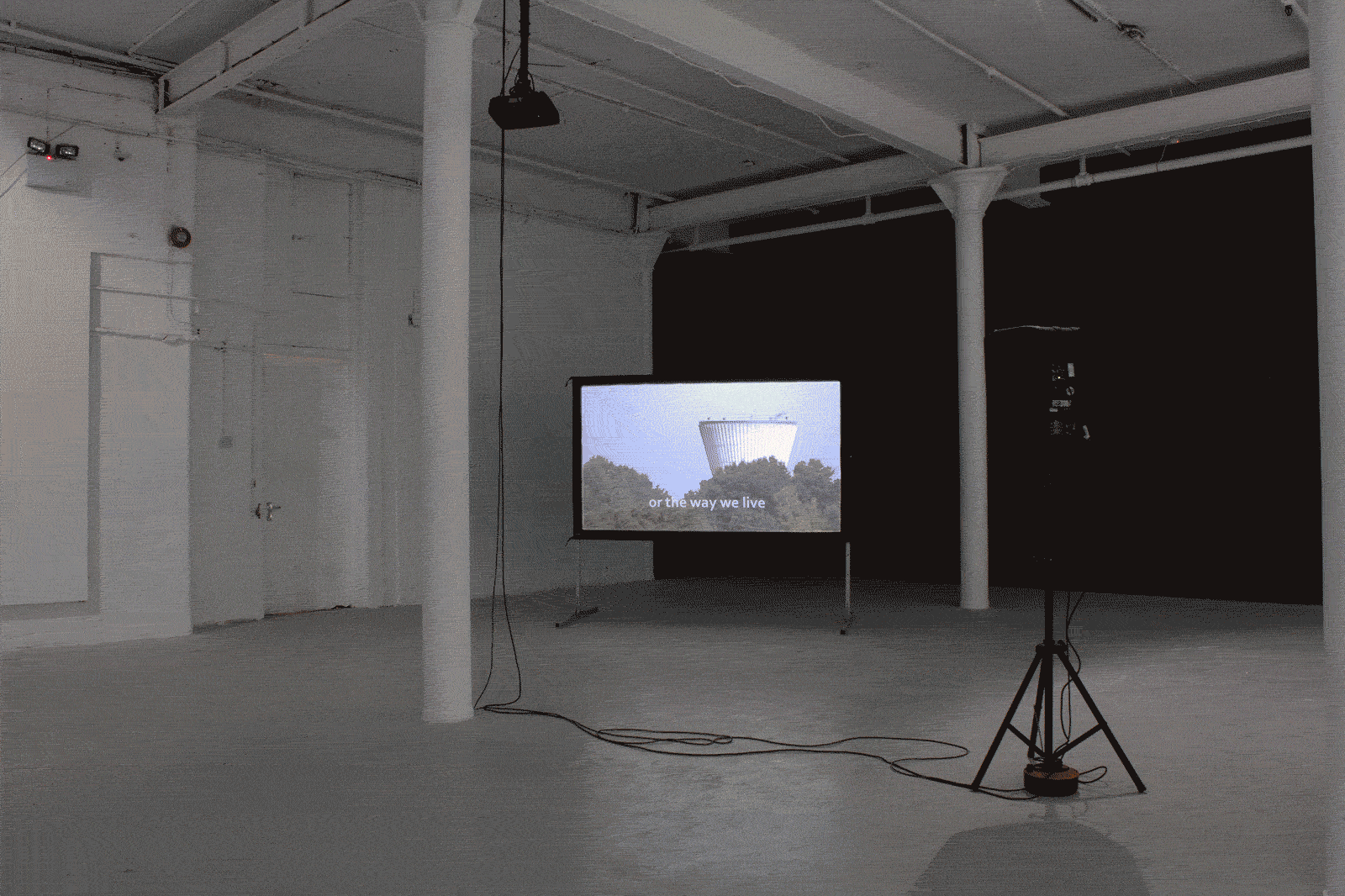TULCA Festival of Visual Art
November 14–29, 2015
Participating artists
Anne Maree Barry / Rhona Byrne / Mark Clare / Carol Anne Connolly / Colin Crotty / Culturestruction / Christo / Jason Deans / Michelle Deignan / Caroline Doolin / Angela Fulcher / Tue Greenfort / Martin Healy / Louise Hervé & Chloé Maillet / Allan Hughes / Brian King / Barbara Knezevic / Clare Langan / Nevan Lahart / Richard Long / Ruth Lyons / Maggie Madden / Maria McKinney / Dennis McNulty & Ros Kavanagh / Ailbhe Ni Bhriain / Seamus Nolan / Seoidin O’Sullivan / Owen Quinlan / Oswaldo Ruiz / Sayler/Morris / Anaïs Tondeur & Jean-Marc Chomaz / Michael John Whelan
Hy-Brasil film screenings
George Bolster / Adam Chodzko / Shezad Dawood / Robert J. Flaherty / Otolith Group / Werner Herzog / Tadhg O’Sullivan / Laura Smith
Curated by Mary Cremin
The future of the global environment may very well be the most pressing political priority of our time. This exhibition seeks to illuminate issues of climate change and our place in the changing landscape while, at the same time, examining the language associated with climatologists’ future projections—language often evocative of science fiction rather than science fact. Through a combination of the real and the imaginary the exhibiting artists create a collective call for a sea change, literally, in our current climate policies.
Climatic shifts could engender large-scale environmental transformations leading to a cycle of entropic social and ecological upheaval ultimately threatening human’s long-term survival. In fact, one could easily imagine that our western lifestyle is being turned back upon us now with cataclysmic results.
What’s more, carbon emissions contribute to the world’s already deplorable social and economic inequality. It creates a kind of geography of vulnerability, which is vastly different between countries and social classes—as is the international response to the situation.
We especially, as island dwellers, are vulnerable to the rising sea levels caused by warming. According to one estimate, by the middle of this century 200 million people may become permanently displaced due to the effects of the rising sea, especially heavier floods and more intense droughts.
This is the starting point of the exhibition Seachange. At its conceptual core it focuses on the legendary island Hy-Brasil: an island, noted on maps as early as 1325, which the Genoese cartographer Dalorto placed off the west coast of Ireland. Mythologised through oral history and written accounts, Hy-Brasil was said to be inhabited by a highly advanced society, although it could only be glimpsed through the fog every seven years. It was only omitted from sailing charts in 1865 when its location could not be verified.
There are different hypotheses on the existence of this island, and the debate continues as to whether it is fact or fiction—for instance, a raised bank off the Atlantic coast is thought to mark the site of the island which sank like the legendary Atlantis. The ways in which the myths associated with this island reflect the changing landscape of our environment form the central line of inquiry of this exhibition.
We have entered an epoch of the anthropocene; climate change offers huge challenges to our societies and is a major test of our capacity for collaboration, imagination and resourcefulness. Art creates a platform for conversations to illustrate and encourage imaginative responses to both the history and future of the climate debate.
To coincide with the exhibition there will be a series of talks and discussions titled Hy-brasil Dialogues that will explore different fields of pertinent knowledge. Speakers include Jean-Marc Chomaz, Dr. Eugene Farrell, Lillis Ó Laoire, Alessandra Costanzo, Alexandra Lima Revez, Rosemarie Butler, Dominic Stevens.
For inquiries, please contact Kate Howard: info [at] tulcafestival.com
Press contact: Heather Mackey
Funded by the Arts Council of Ireland, Galway City Council, Galway County Council, Community Knowledge Initiative (CKI) NUI Galway, Embassy of France, US Embassy, Goethe-institut


